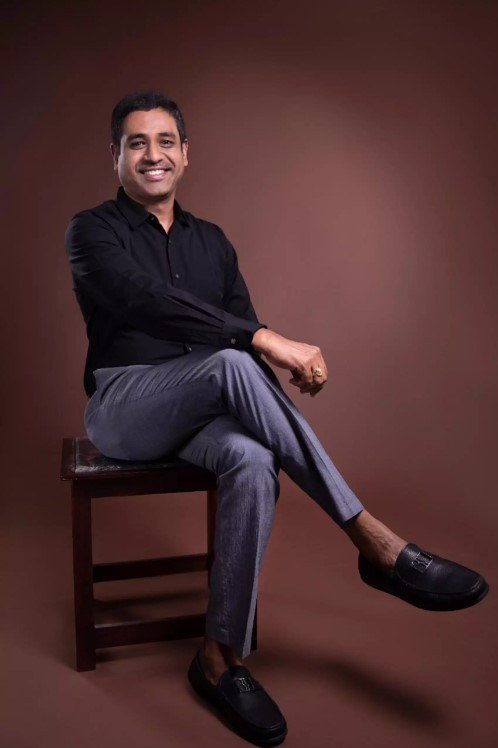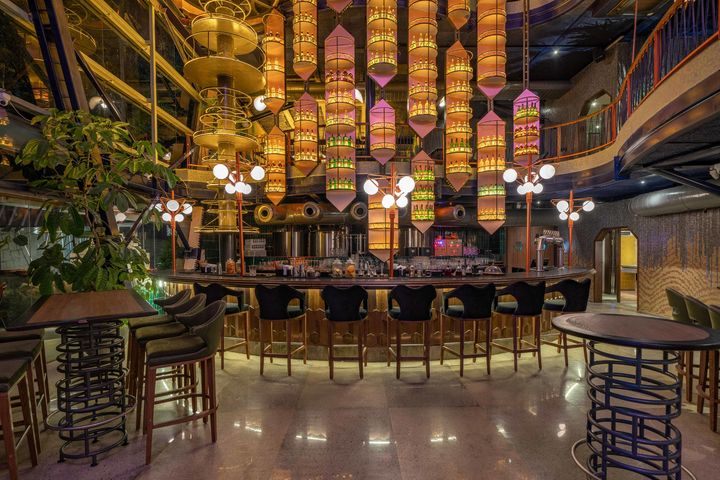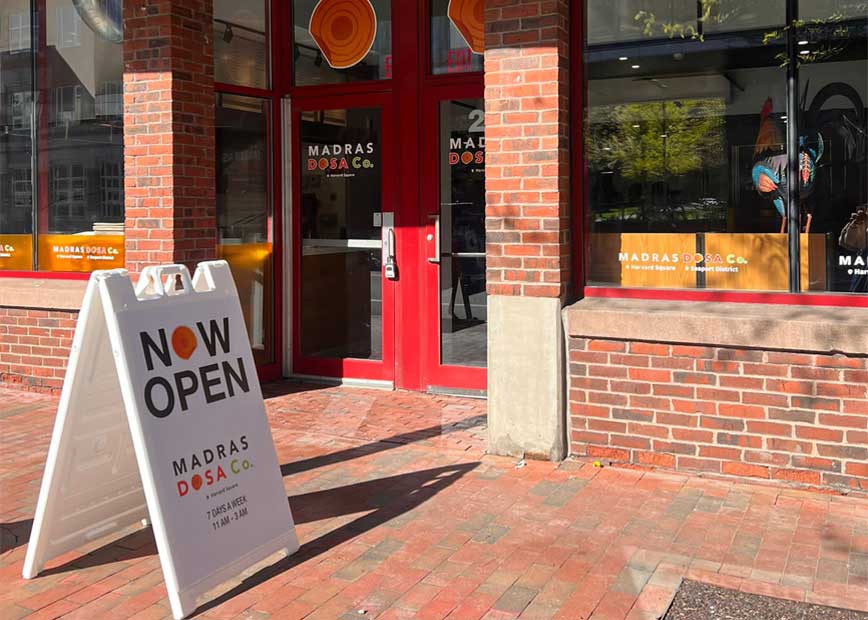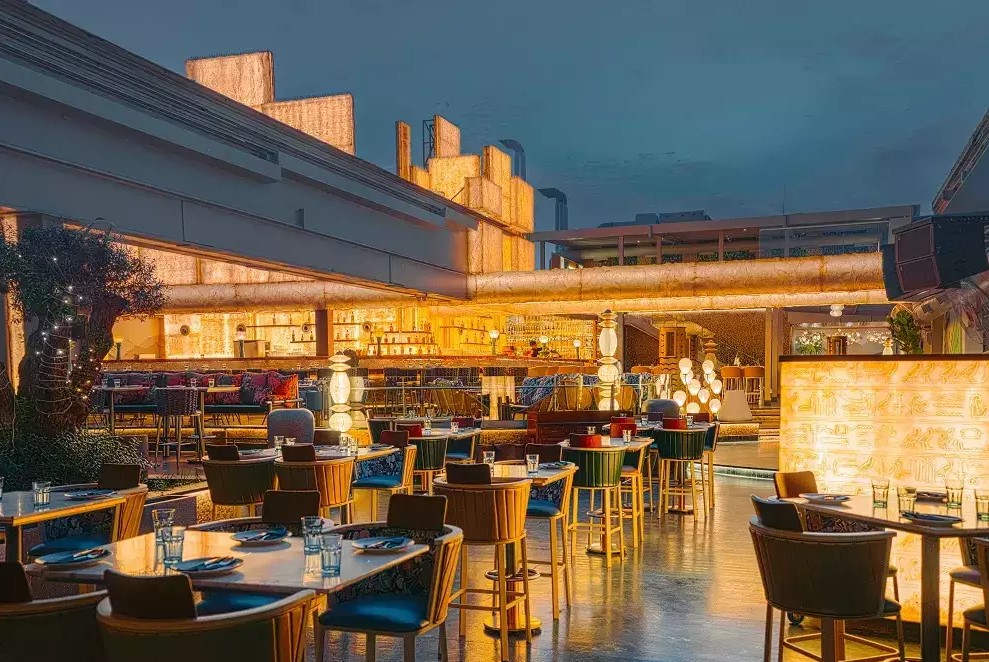(August 7, 2023) How does a young engineer end up as the President of a company that owns a chain of restaurants, microbreweries the size of a gated community, and other food and beverage hotspots that are perennially popular? Teja Chekuri is one such entrepreneur born with vision and foresight. He says, in an exclusive with Global Indian, “After my master’s at Gannon University in Eire, Pennsylvania, I worked at Metlife and UPS. Then I set up my own IT services company. While travelling around the US, I observed that microbreweries were popular and I thought of setting up one in India. I was planning to move back to India and there were three cities with microbreweries already running – Bengaluru, Pune and Gurgaon. I saw the opportunity, wanted to have the early mover advantage and decided to go for it.”

Teja Chekuri, founder of the microbrewery Prost, in Hyderabad.
Microbreweries to Macro Businesses
Teja’s food and beverage outlets span across India, the US and Canada. He started with Prost, a microbrewery, in Koramangala, Bengaluru in 2012. Though hailing from Telangana, the lack of permissions made him choose Bengaluru; he eventually launched Prost in Hyderabad in 2016.
Simultaneously, based on his observations of the Indian cuisine served in the US, he decided to set up a chain of restaurants that would be unapologetic about their spicy foundation – essentially Andhra and Telangana food – not tweaked to suit the American palate. “In 2015, we launched Godavari in Woburn, 20 minutes away from Boston, Massachusetts. We did not want to do the sweetened versions of curries. We were not afraid to make it spicy; why should we change our food?” he asks.

Prost, Hyderabad.
It might have seemed risky to many but incredibly, Godavari received a positive response, and is now in over 30 locations across the US and in Toronto, Canada. With plans to launch 21 more branches in the near future, with the latest ones set up in Denver, Colorado and Princeton, New Jersey, Godavari is present in Delaware, Toronto, Tampa, Jersey City, Minneapolis, Orange County, Atlanta, Columbus, Woburn, Philadelphia, Naperville, Houston, Schaumburg, Kansas, Charlotte, Cincinnati, Edison, Hartford, Herndon, Morrisville and Rhode Island etc. Despite 30-40 per cent of the menu changing once a year, the thali, the Andhra Chicken Curry and the Hyderabadi Dum Biryani are its most popular items. Godavari also serves idlis, dosas, sambar and rice and uluvacharu – dishes familiar to the fairly large Telugu speaking diaspora. And, the flagship Woburn restaurant, is still the biggest crowd puller, contributing over 300,000 USD to the company’s turnover every month.
Expanding Indian Cuisine’s Frontiers
Under the Godavari Group of Restaurants in the US, Teja continued to expand. Following the quick service restaurant model, Vaanga, serving fusion Indian food was started in 2017 in Boston. He then launched Madras Dosa Company [MDC] in 2021 in Seaport and Harvard Square, in the same city. He refers to MDC as a “Subway for dosas with a set menu – two kinds of batters, two chutneys [coconut and ginger; peanut is not used due to people’s allergies] and toppings like karam podi, sweet chocolate, onion, Horlicks, and more. There is even a Lays [chips] and an ice cream dosa available for kids. We are now looking to launch MDC at Times Square in New York too,” he reveals.
This was followed by 1947 – Truly Indian – a fine dining brand serving North and South Indian cuisine in Norwood, Massachusetts also in 2021. The next two ventures he has lined up for Boston include an Indian gastro bar called ‘Don’t Tell Aunty’, serving fusion food, and drinks concocted with Indian spices. The other is Boston Halal, following the quick service restaurant model, serving Mediterranean food.

Madras Dosa Company, Seaport.
This year, Teja incorporated all his brands into the Golden Horn Company, of which he is the President. His initial investment of six crore rupees now fetches a neat turnover of Rs 250 crore. In the US, his partner who handles operations is Kaushik Koganti and Sree Harsha Vadlamudi partners him in India.
The company has clearly defined roles and demarcations. He says, “Every menu goes through six months of trials and tests; we have streamlined operations and 40 staff members oversee different departments for all the chains. Maintaining the highest standards is a must. It was tougher to get permissions and licenses in some cities and others were easier. But, ensuring that all the dishes taste the same across the outlets remains a challenge.”
The India Growth Story
Next on the anvil is Pangeo – a lounge bar on Bengaluru’s Brigade Road, spread over 20,000 square feet – to be launched shortly. And the world’s largest microbrewery spread over two acres, or 1.4 lakh square feet, in Marthahalli in Bengaluru again. Teja is looking at opening new outlets in Hebbal, Kanakapura and cities like Nagpur. Purple Potato, in Hyderabad’s Financial District, serving what he calls borderless cuisine, is also due to open its doors shortly.
Milestones and More
What could perhaps be his company’s biggest milestone this year though, has been his investment of buying a whopping nine franchises of Dunkin’ Donuts in the US. He says, “For two years, we have been trying to acquire these franchises. The company has very stringent rules about who they give them to. After evaluating us for a long time, they gave us their approval. We invested 18 million USD into acquiring nine of them in different locations.”
How does he stay ahead of the game? It is almost like he knows what is going to be the next big trend and gets on it before his competitors do. He says, “The food and beverage market is a volatile one. If you want to grow, you have to keep changing and evolving. You have to know what people want to eat when they dine out, all over the world. Currently, pan-Asian food is the popular trend.”

Pangeo lounge bar, Bengaluru.
If he didn’t have enough on his plate already, Teja has also been nominated to the Forbes Business Council, a prestigious networking platform where he is expected to give advice as a mentor, write articles and be part of expert panels, in business affairs.
With a busy lifestyle, long hours included, how does he maintain a work-life balance? He says, “I travel a lot for work, but when I am in Hyderabad, I make it a point to go home early to spend time with my wife and two daughters. I go to the gym every day and I catch up on my reading on flights.”
Teja’s career trajectory seems unstoppable with multiple food and beverage venues. His business could well become a case study at a business school in the future.




